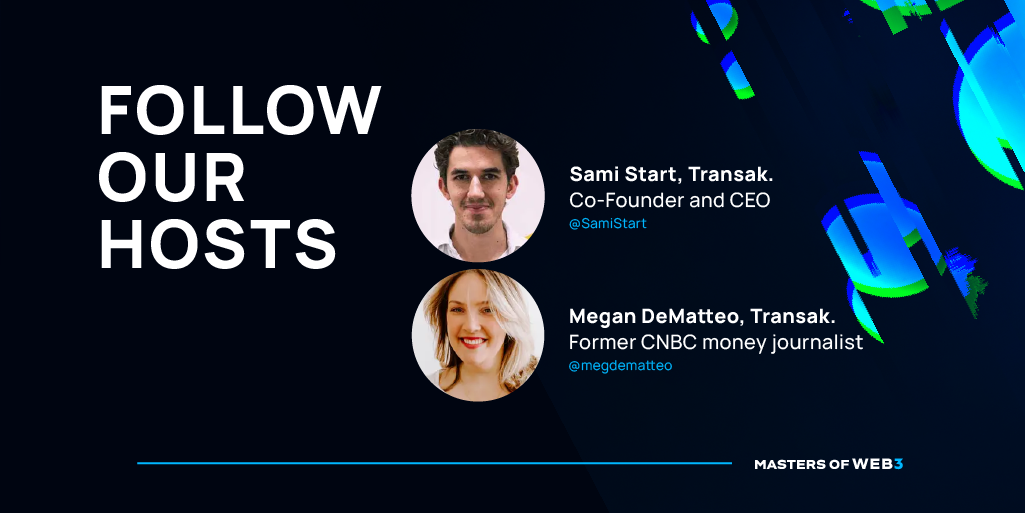From Corporate to DAOs: Weso’s Journey to Beefy | Transak
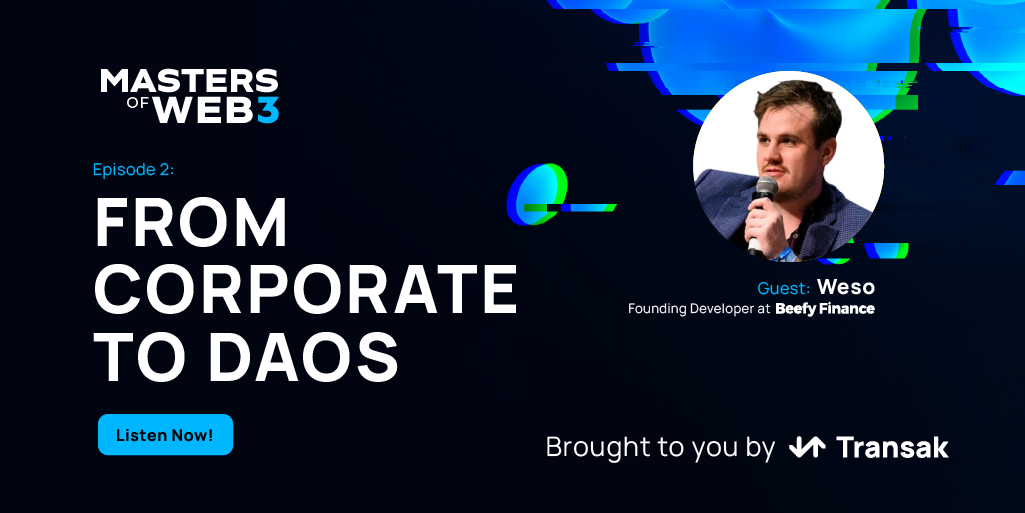
When it comes to investing in cryptocurrency, or anything for that matter, you should fundamentally understand what you are investing in. Researching investment opportunities can be lengthy and complicated, especially when considering investing in new or relatively unknown opportunities.
Listening on a desktop & can’t see the links? Click below to listen on your favorite podcast player:
Beefy Finance helps make that initial researching process and investing a little bit easier by simplifying DeFi yields for those that are both practiced and new to the world of crypto.
Weso, who once worked at a Fortune 50 company, is the lead developer and strategic partnerships coordinator for Beefy Finance.
In this week’s episode of Masters of Web3, Weso discusses the unique aspects of developing a Decentralized Autonomous Organization and how this structure establishes Beefy Finance as an authority in multichain yield optimization.
Our discussion with Weso dives into the importance of transferable business skills, the benefits of a diverse team of contributors, and more.
Transferable business skills matter, especially when building dynamic DAOs
Rather than operating under the command of a board or strong organizational government, Beefy has been designed with stakeholders in mind. Instead of relying on employees, Beefy functions under the vote of contributing contractors.
Created as a Decentralized Autonomous Organization, or DAO, Beefy Finance incorporates the values and opinions of users.
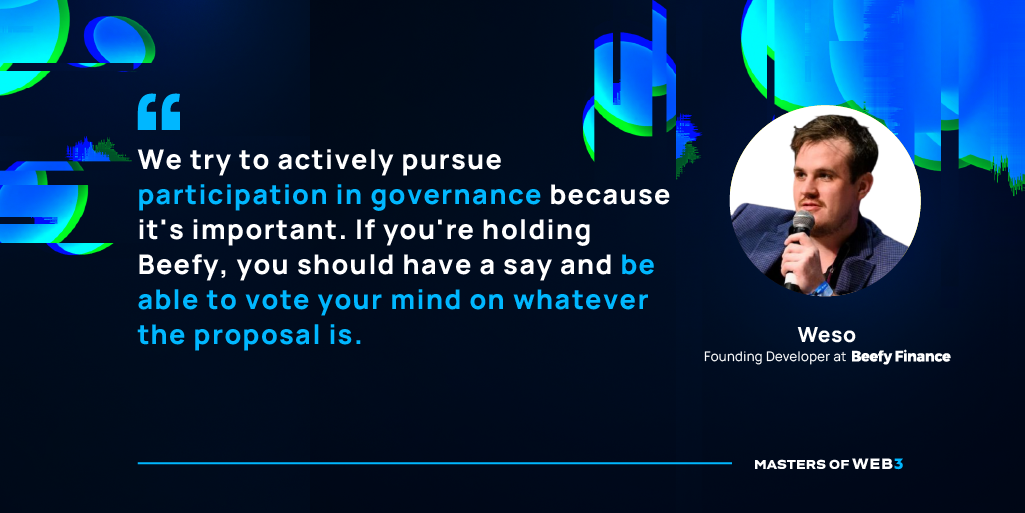
Businesses backed by contributors can often incorporate some of today’s smartest free-thinkers. However, even with the best minds in programming and finance, a successful organization must include individuals with a robust set of business skills.
Without business skills, an organization can falter. Even the best constructs and ideas across DeFi can fail if they do not exist in a setting that is business savvy and can understand the importance of marketing, administration, and business management.
These transferable business skills are vital, according to Weso, and they are also what sets Beefy Finance apart from other DeFi organizations.
Simplifying DeFi for ease and greater accessibility
When discussing the goals and purposes that drive Beefy Finance, Weso discusses the importance of inviting new people and groups into the world of crypto and Defi and simplifying the overall process for those practiced in multichain yield.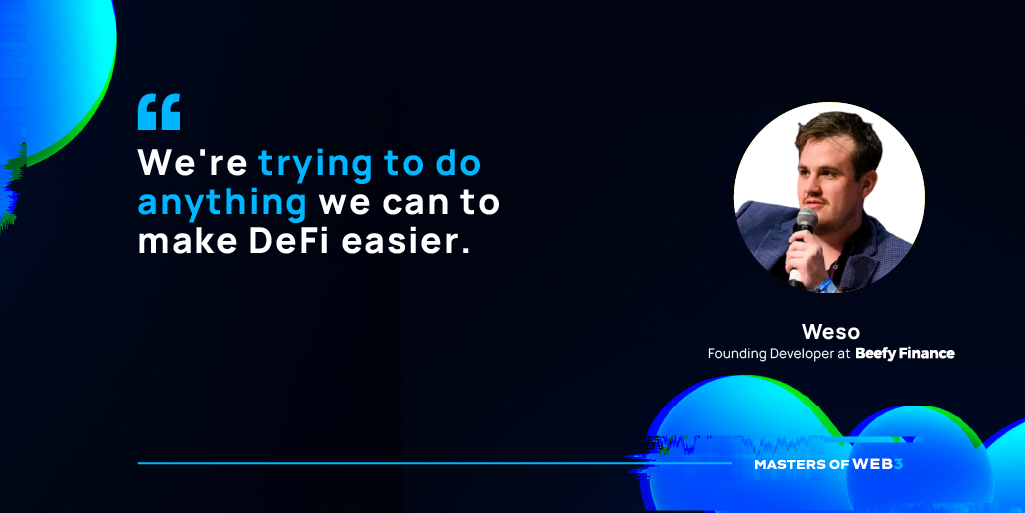
Attributing part of their success to the solid team of contributors with skills across many specialties, Weso hopes the organization continues on its journey to streamline involvement in crypto exchange, welcoming in partners from retail and beyond.
Beefy focuses on continual development and improvement By utilizing true transparency. This value of openness is foundational in how the organization and contributors work and in the overall services and goals established by Beefy.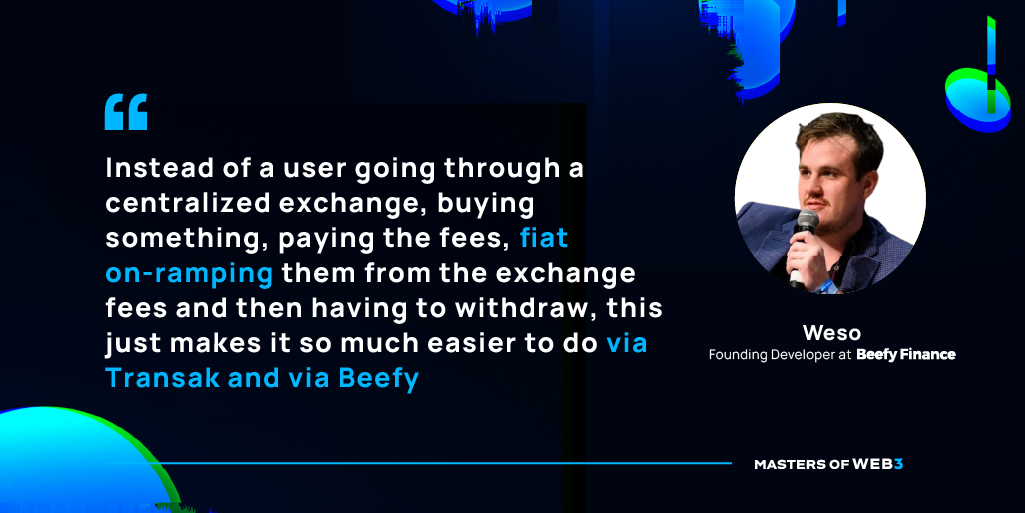
With simplicity in mind, Beefy works to create the best multichain yield optimizer available. By including contractors and stakeholders in organization decisions, each moving part of this remote organization is genuinely invested in the forward-moving of the company.
Far from a corporate setting: Compensation, communication, and team structure
While the DAO construct provides many benefits to modern businesses like Beefy, they also come with many challenges. Having shifted from working in a Fortune 500 corporate setting, Weso describes some of these distinctions.
Unlike corporate settings, the DAO structure requires particular decisions regarding compensation, communication, and overall contribution structure.
As a team of 16 main contributors across the globe, the organization lacks a traditional structure. However, what it lacks in the physical foundation, it makes up for with flexibility. Of these contributors, 14 receive a monthly salary as decided by a treasury elected by holder votes.
Contributors communicate primarily on Discord, with the opportunity to vote on proposals, discuss problems, and discuss new ideas. By pursuing the active participation of contributors, leaders in Beefy spark excitement. Not only do these contributors have a stake in the company’s success, but also in how the organization may reach that success.
With the power in the hands of the stakeholders, Beefy is truly an organization with users' interests in mind.
Far from a corporate setting, this organizational style allows each stakeholder to offer their knowledge and specialty. Ultimately, this enables the organization to capitalize on the strength’s of each stakeholder, filling in gaps and shortcomings with the knowledge and skills of other contributors.
The uncharted future of DAOs
While DAOs are not necessarily a new construct, organizations built like Beefy are unique. However, with growing demand and innovation in crypto and DeFi, DAOs likely will only grow.
With sparing governance that varies across legalities, DAOs currently exist in relatively uncharted waters.
Organizations such as Beefy are trailblazing the future of DeFi and DAOs. With a focus on continuous improvement and adaptation, Weso and other Beefy contributors will no doubt provide innovation and guidance for decades to come.
Listening on a desktop & can’t see the links? Click below to listen on your favorite podcast player:
Building in Web3 and looking to accept payments? Integrate Transak Today
